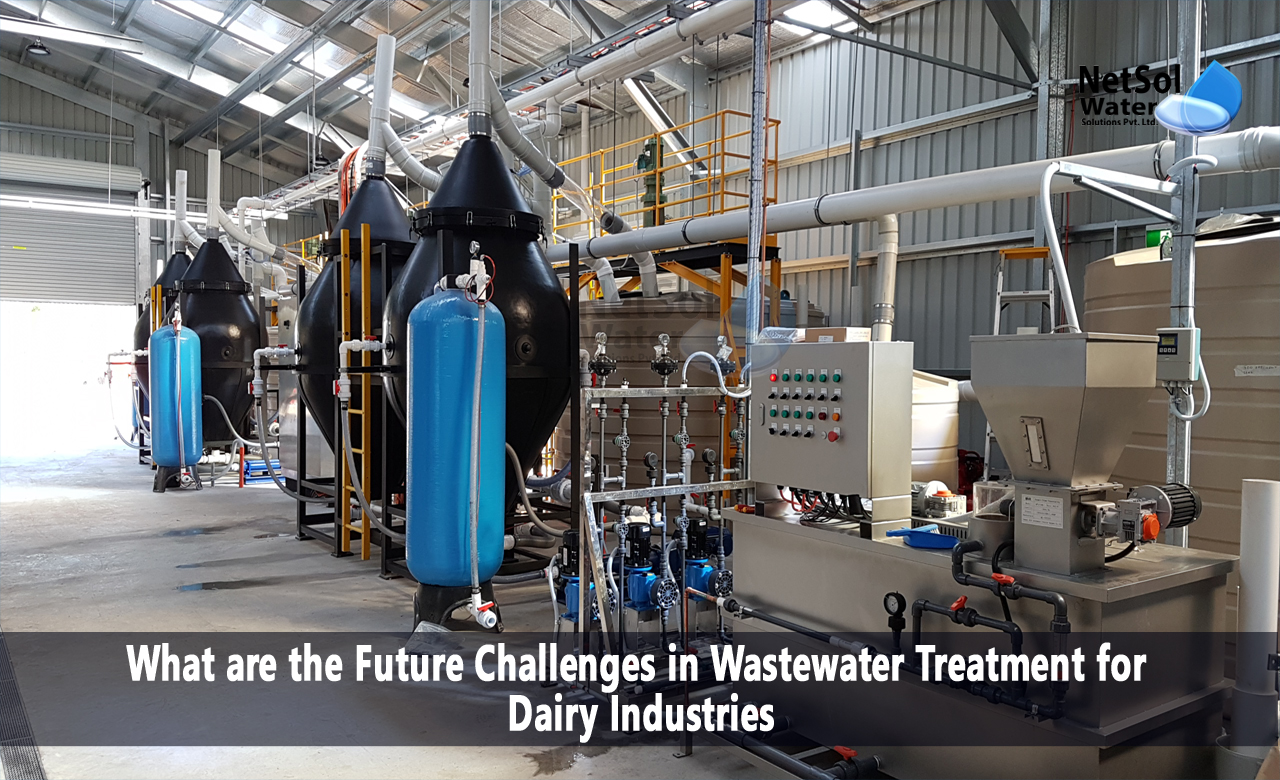What are the Future Challenges in WWT for Dairy Industries?
Dairy is an essential component of global food needs but presents environmental hurdles as it grows. Wastewater Management poses a big problem. The challenges of treating wastewater produced in dairy operations expand as the industry develops. This section will explore the challenges faced by wastewater treatment in dairy units and the future.
Increasing Volume of Wastewater
The increasing population is resulting in a high demand for dairy products. The more milk produced, the more wastewater is generated in the processing stage. The industry is also faced with the challenge of efficiently managing this surge in sewage.
Emerging Contaminants
Emerging contaminants are introduced into wastewater due to advancements in dairy processing techniques. Some of these may be drug residues, hormones, or other chemicals used in dairy processing. Detecting and eliminating such impurities is an ongoing challenge, faced by wastewater treatment plants.
Stricter Environmental Regulations
Increasing global awareness of environmental issues forces industries such as dairy towards stricter regulations. Such wastewater treatment techniques are necessary for compliance with these regulations. For dairy producers, it is a precarious act to adhere to the changing trends and remain cost-effective.
Energy Consumption and Carbon Footprint
Conventional wastewater treatment is energy inefficient. This industry is continually facing pressure to adopt environmentally sound policies and lower their carbon emissions. This calls for creative solutions and technological innovations as it involves striking a balance between effective treatment and energy efficiency.
Nutrient Management
Wastewater from dairy can contain high levels of nutrients like nitrogen and phosphorus that may contaminate water if not well handled. The challenge of achieving an equilibrium between nutrient removal and recovery for beneficial reuse is a complex one, necessitating comprehensive and efficient waste water treatment approaches.
Integration of Circular Economy Principles
Circular economy principles are being adopted by the dairy industry, focusing on the recovery of resources and reduction of waste. Applying these principles to wastewater treatment will require a shift away from conventional thinking—extracting value from by-products, for instance, producing biogas from organic matter—in the traditional approaches towards integrating them.
Technological Innovations
Technological developments have opened up new opportunities for wastewater treatment in the dairy industry by increasing speed. Real-time data analysis with the help of technologies such as artificial intelligence, machine learning, and sensor-based monitoring systems allows for effective process optimisation. However, there are difficulties in integrating these innovations into the existing wastewater treatment infrastructure, such as expenses related to this process and the adequacy of expertly qualified personnel.
Water Scarcity and Conservation
With growing fears of worldwide water shortages, the dairy sector is under increasing pressure to implement water conservation practices. Wastewater management involves developing closed-loop systems that minimise water consumption in dairy processing for efficient water use in sustainable dairy processing. This balance needs to be attained using a comprehensive approach that involves the dimensions of water quantity and quality.
Public Perception and Corporate Responsibility
The public awareness of environmental problems is affecting consumer preferences, which leads to corporate responsibility initiatives. Wastewater Management Practices by Dairy Companies under Scrutiny. It is not just a challenge but rather an opportunity for the industry to demonstrate its care for sustainable practices and address public concerns, to enhance their reputation and market competitiveness.
Collaborative Industry Initiatives
Collaborative endeavors within dairy industry for wastewater treatment in the face of complex problems. Advancement in sustainable wastewater management is also achievable through shared research, best practices, and the development of industry-wide standards. Collaborative initiatives can support shared case studies and lessons for joint solutions.
Conclusion:
As such, the future of wastewater treatment in the dairy industry appears as an arena of dynamic challenges and opportunities that define this industry. As an integral part of society, the industry has to deal with the added complication of wastewater volumes, emerging contaminants, and stricter regulations while being pressured to minimise its ecological footprint. The dairy industry can not only counteract these challenges but also come out on top as a leader in responsible and eco-conscious production if it embraces technological innovations, implements sustainable practices, and promotes cooperation. Forward, it would be crucial for us to adopt a comprehensive, adaptive and visionary approach if we are to guarantee the continued growth of the dairy industry.
Netsol Water is Greater Noida-based leading water & wastewater treatment plant manufacturer. We are industry's most demanding company based on client review and work quality. We are known as best commercial RO plant manufacturers, industrial RO plant manufacturer, sewage treatment plant manufacturer, Water Softener Plant Manufacturers and effluent treatment plant manufacturers. Apart from this 24x7 customer support is our USP. Call on +91-9650608473, or write us at enquiry@netsolwater.com for any support, inquiry or product-purchase related query.



